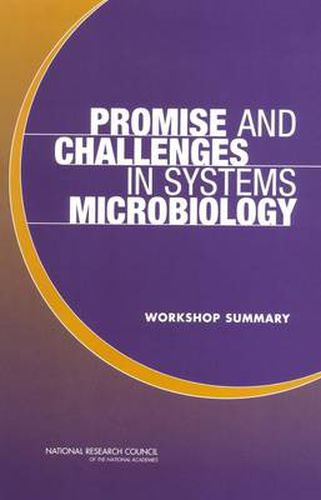Readings Newsletter
Become a Readings Member to make your shopping experience even easier.
Sign in or sign up for free!
You’re not far away from qualifying for FREE standard shipping within Australia
You’ve qualified for FREE standard shipping within Australia
The cart is loading…






Microbiologists have become interested in applying a /systems biologya to understand and harness complex biological processes in microbial communities. A systems approach, which attempts to use comparative, high-throughput assays, and mathematical or computational models, has been used to generate a picture of system-wide activity that can yield insight into processes operating within a single cell. But the concept of integrating advances in genomics, proteomics, and metabolomics and incorporating them into mathematical models can also be applied to microbial ecosystems, which typically occur in consortia of related and unrelated organisms. Research on microbial communities using a system-based approach could provide a broader perspective on controls on biological processes and how they operate in and among microorganisms. The National Academies of Sciences, Engineering, and Medicine held a workshop on a /Progress and Promises of Systems Microbiologya in August 2003, with the intent of providing a forum for discussion of the tools, technology, and programs that are needed to advance the study of microorganisms through a systems approach. Participants also discussed ways to encourage collaboration among scientists of different disciplines. This report summarizes the presentations and discussions from the workshop.
$9.00 standard shipping within Australia
FREE standard shipping within Australia for orders over $100.00
Express & International shipping calculated at checkout
Microbiologists have become interested in applying a /systems biologya to understand and harness complex biological processes in microbial communities. A systems approach, which attempts to use comparative, high-throughput assays, and mathematical or computational models, has been used to generate a picture of system-wide activity that can yield insight into processes operating within a single cell. But the concept of integrating advances in genomics, proteomics, and metabolomics and incorporating them into mathematical models can also be applied to microbial ecosystems, which typically occur in consortia of related and unrelated organisms. Research on microbial communities using a system-based approach could provide a broader perspective on controls on biological processes and how they operate in and among microorganisms. The National Academies of Sciences, Engineering, and Medicine held a workshop on a /Progress and Promises of Systems Microbiologya in August 2003, with the intent of providing a forum for discussion of the tools, technology, and programs that are needed to advance the study of microorganisms through a systems approach. Participants also discussed ways to encourage collaboration among scientists of different disciplines. This report summarizes the presentations and discussions from the workshop.